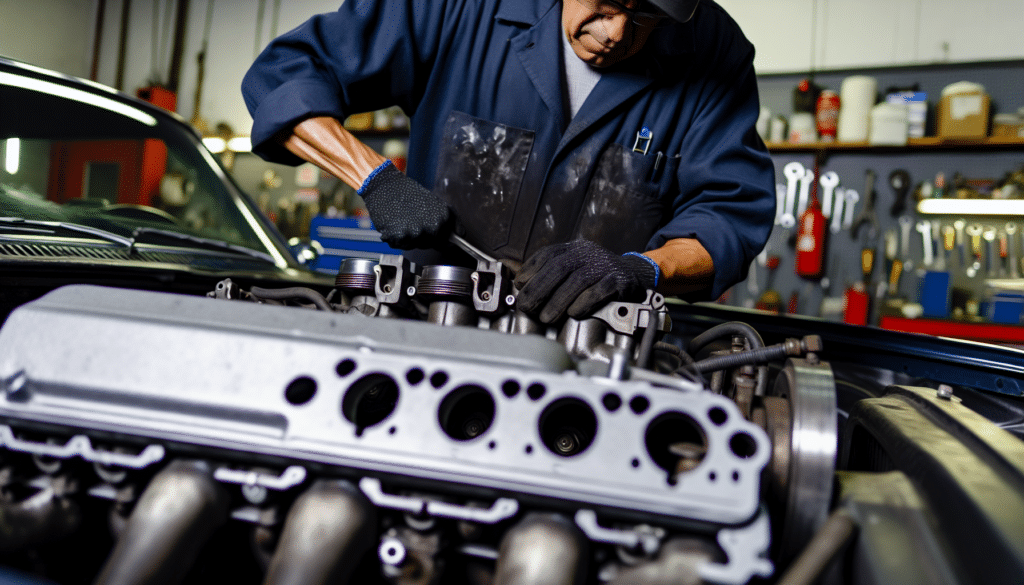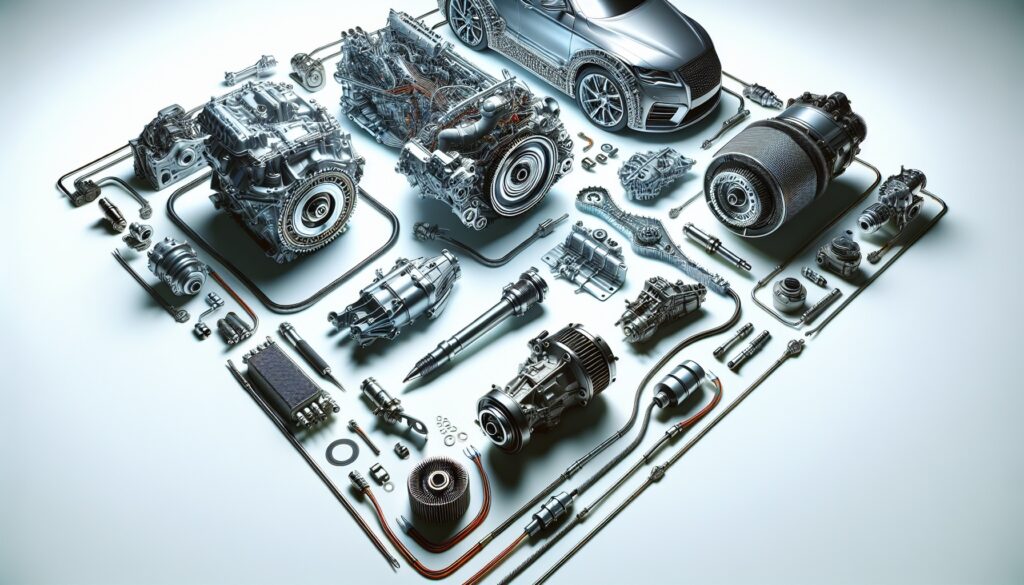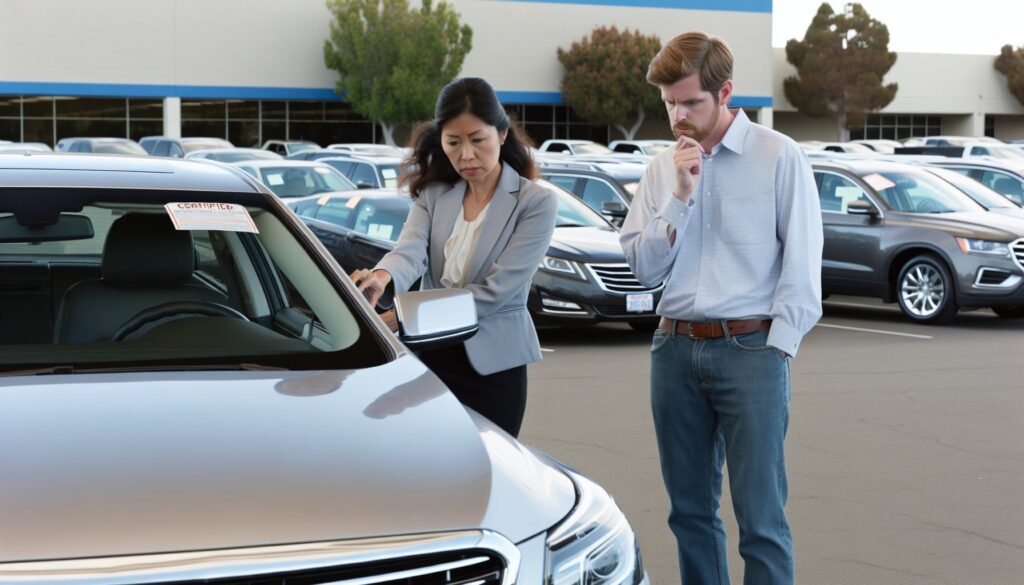What Does An Extended Car Warranty Cover?

When your original car warranty nears its end, understanding “what does an extended car warranty cover” can offer you peace of mind. Extended warranties typically cover the costs of repairs and replacements that occur due to manufacturing defects or normal use after your factory warranty expires. However, they vary widely in scope, from basic powertrain protection to comprehensive plans that mimic the original coverage. In this article, we will explore the different kinds of extended car warranties, what they generally include, and the essential considerations before purchasing one.
What Does An Extended Warranty Cover?
Extended car warranties, also known as vehicle service contracts, provide coverage for vehicle repairs and specific failures after the original factory warranty expires, with different types of warranties such as Powertrain, Powertrain Plus, and Comprehensive Coverage Plans.
Exclusionary coverage, otherwise known as bumper-to-bumper warranties, is comprehensive but does not cover routine maintenance and wear-and-tear items; deductibles vary and they affect the overall cost and claim process of the warranty.
Choosing the right extended warranty provider requires careful research and comparison, taking into account customer reviews, company history, state laws, as well as the balance between the warranty’s cost and its potential benefits.
Decoding Extended Car Warranties

In essence, an extended car warranty or vehicle service contract is a purchased agreement that covers repairs once your vehicle’s original factory warranty expires. It’s like a safety net for your wallet, ready to catch the unexpected costs of specific repairs, labor, and potentially, failures due to poor workmanship or defective components during a defined timeframe or mileage range. Think of it as a superhero swooping in to rescue you when your original warranty bids farewell.
But not all heroes wear capes, and not all extended warranties offer the same protections. There are various types of extended warranties, including:
- Powertrain warranties, which cover the engine, transmission, and other major components
- Bumper-to-bumper warranties, which provide coverage for almost all parts of the vehicle
- Component-specific warranties, which only cover certain parts or systems
The key is to find the extended warranty that suits your requirements and provides comprehensive protection for your trusty vehicle.
Core Coverage: The Powertrain Warranty
At the heart of extended warranties is the powertrain warranty, a type of coverage that safeguards the most crucial components of your vehicle, those that help it move forward (or backward). Consider it as your car engine’s guardian, warranting the protection of vital internal components such as the crankshaft, camshaft, pistons, among others. If your vehicle is turbocharged or supercharged, the powertrain warranty has got you covered for that too.
But the powertrain warranty’s protection doesn’t stop at the engine. It extends its shield to cover:
- The transmission, including the torque converter and transmission mounts
- The transfer case, safeguarding the main shaft, output shafts, and bearings
- Your vehicle’s drive systems, whether front/rear wheel drives or four-wheel/all-wheel drives
Indeed, securing an auto loan is a valuable ally in the challenging journey of vehicle ownership.
Beyond Basics: Powertrain Plus Coverage
For those who crave a little more security, there’s Powertrain Plus Coverage. As the name suggests, this option goes above and beyond the standard powertrain warranty, extending its protective arm to cover additional systems crucial for your vehicle’s performance, comfort, and safety. This warranty can be likened to an older sibling of the powertrain warranty, offering increased wisdom and broader coverage.
The Powertrain Plus Coverage includes protection for:
- The drivetrain, which includes essentials for your vehicle’s motion, excluding the engine
- Advanced technological components
- Sophisticated electronics necessary for modern vehicle operation
It is an ideal option for those desiring additional protection for their vehicle and an enhanced peace of mind.
Ultimate Protection: Comprehensive Coverage Plan

Looking for the ultimate in extended warranty protection? Look no further than the Comprehensive Coverage Plan. This plan, the crowning jewel of vehicle warranty protection, encompasses both Powertrain and Powertrain Plus Coverages, and then some. This plan is akin to a superhero team-up, pooling the powers of extended warranties to provide the most comprehensive protection.
In addition to the features of the Powertrain and Powertrain Plus protections, the Comprehensive Coverage Plan comes with extra safeguards for an even more extensive range of parts and systems. From major vehicle systems like the engine, transmission, and brakes, to the remainder of the vehicle, the Comprehensive Coverage Plan has it all covered. Consider it as the grand finale of warranties, where every vehicle component is welcomed.
Understanding Exclusionary Coverage

Another option you might come across in your extended warranty journey is exclusionary coverage. Also known as a “bumper to bumper warranty,” this plan is designed to cover nearly all mechanical and electrical parts of your vehicle, from, you guessed it, the front bumper to the back. Think of it as a warranty buffet, offering an assortment of protections to cater to all your needs.
But like every buffet, there are always a few dishes you can’t have. In the case of exclusionary coverage, these are typically routine maintenance and wear-and-tear items that the vehicle owner is responsible for replacing or repairing. Despite these exclusions, this type of coverage still offers the broadest form of warranty protection, closely mirroring the original factory warranty.
What’s Not Included?
While exclusionary coverage is extensive, it’s not absolute. Certain items are typically left out of the coverage, such as maintenance items and wear and tear parts like brake pads, tires, wiper blades, and oil changes. Cosmetic items like paint and bodywork are also usually not covered.
Bear in mind that commonly excluded items include:
- wiper blades
- lights
- batteries
- sundry items such as tires and brake pads
So, while your extended warranty is a safety net, it might not catch everything.
Deductible Options
Just like your car insurance, your extended warranty comes with a deductible. This is the amount you’ll need to pay when you make a claim. The amount of your deductible can vary, with options like $300 or $500, or even a waived deductible available. The amount of your deductible can affect the overall cost of your warranty, with lower deductibles typically resulting in higher premiums.
Remember that when a claim is made, the designated deductible must be paid at that time.
Extra Benefits of Extended Warranties

Beyond the peace of mind that comes with knowing your vehicle is protected, extended warranties often come with a host of extra benefits, including:
- Roadside assistance
- Rental car reimbursement
- Trip interruption coverage
- Transferability to a new owner
- Coverage for wear and tear
- Additional coverage for specific components
These benefits can enhance the value and convenience of your manufacturer’s warranty, making it an even more worthwhile investment.
Many extended car warranties, including extended car warranty cover, offer the following benefits without significantly increasing the extended car warranty cost:
- 24/7 roadside assistance, covering services like towing and assistance for flat tires or dead batteries
- Rental car reimbursements when your vehicle is under repair, ensuring you can stay mobile
- Additional benefits like key fob replacement or trip interruption coverage
It’s like having your own personal assistant, always ready to lend a helping hand.
When Does Coverage Kick In?
You’ve purchased your extended warranty, but when does it actually start? Most extended car warranties have a standard waiting period, usually of either 30 days or 1,000 miles after purchase, before the coverage becomes active. This is to ensure that the warranty is not used for pre-existing conditions, which are typically not covered by extended warranty providers. During this waiting period, any car repairs that are needed will not be covered by the warranty.
Although the waiting period might seem tedious, it’s a crucial step in making sure your warranty functions as expected.
Choosing Your Warranty Provider Wisely
Choosing your extended warranty provider is a crucial decision, and one that should not be taken lightly. It’s vital to diligently research and compare various providers before settling on a choice. Make sure to gather all the necessary documents, such as the contract number and service records, before contacting your provider to file a claim.
Consulting customer reviews on platforms like the Better Business Bureau and Trustpilot can lend insight into a company’s customer service and reliability. And don’t forget to investigate the history of extended car warranty companies, watching for consumer complaints and avoiding those using high-pressure sales tactics or providing insufficient coverage.
Remember, state laws can impact extended warranty terms, which may include the ability to get refunds or impose certain disclosure requirements. So, be aware of these factors and don’t be afraid to negotiate the price of your extended warranty. You might just get yourself a better deal.
Comparing Manufacturer’s and Third-Party Warranties
When it comes to choosing an extended warranty, you have two main options: manufacturer’s warranties and third party extended warranties. Each has its own benefits and drawbacks, and choosing between them will depend on your specific needs and circumstances.
Manufacturer’s warranties, such as bumper-to-bumper warranties, typically last for three years or 36,000 miles, and powertrain warranties may last up to 60 months or 60,000 miles. Some manufacturers also include extended warranties with their certified pre-owned vehicles, enhancing their value. On the other hand, third-party providers often offer more comprehensive and cost-effective extended warranty options than manufacturers. However, the location for warranty repairs is critical to consider to ensure convenient and accessible service.
Navigating the Claims Process
Once you’ve selected your extended warranty provider, the next step is to make a claim. Navigating the claims process can seem daunting, but with a little knowledge, you can make it through with ease.
When filing a claim, it typically involves the following steps:
- Go to a licensed repair facility and get authorization from the warranty provider for repairs.
- Authorize an initial diagnostic tear-down or inspection to discover the specific cause and cost of the repair.
- Once the claim is approved, pay the designated deductible.
And remember, to keep your extended warranty valid, your vehicle must be regularly maintained. So keep up with those oil changes!
Balancing Cost and Value in Extended Warranties

A key question to answer when pondering an extended warranty is if the warranty’s cost outweighs potential benefits. The cost of an extended car warranty varies based on several factors, including:
- The type of coverage
- The specific car model
- Vehicle age
- Mileage
Vehicle age and mileage significantly impact the warranty cost due to wear and tear, and more comprehensive plans are typically priced higher.
You should weigh the cost of the warranty against potential savings from major repairs, factoring in the vehicle’s reliability and ownership duration. Seeking multiple quotes from different providers is recommended to ensure competitive pricing for extended car warranties. After all, it’s not just about the price tag – it’s about getting the best value for your money.
Is Extended Warranty Right for You?
Is an extended warranty the right choice for you? Only you can answer that question. It depends on several factors, including your vehicle’s reliability, your financial readiness for unexpected vehicle repairs, and how long you plan to keep the car.
If you’re not sure, consider alternatives like setting aside a fund for potential car repairs. This can cover any unexpected costs and can sometimes prove more cost-effective than purchasing an extended warranty. Remember, the decision to purchase an extended warranty should be based on careful consideration of your specific needs and circumstances. There’s no one-size-fits-all answer here – only the solution that’s right for you.
Summary
In conclusion, extended car warranties can provide valuable peace of mind for vehicle owners, covering potential repair costs and offering additional benefits like roadside assistance and rental car reimbursements. However, they also come with costs and exclusions, and not all warranties are created equal. It’s essential to do your homework, comparing different providers and plans, and balancing the cost of the warranty against potential repair savings, vehicle reliability, and ownership duration. Ultimately, the decision to purchase an extended warranty is a personal one, based on your specific needs and circumstances. So, take the time to consider your options, and choose the one that’s right for you.
Frequently Asked Questions
What is not covered under car warranty?
Car warranties do not cover damages related to accidents, theft, or environmental factors. Additionally, wear and tear components like brake pads and windshield wiper blades are not included in the warranty coverage.
What are two reasons not to buy an extended warranty?
Extended warranties are not a good idea because 1 in 5 consumers are dissatisfied with the repair service and there’s a risk of the provider going out of business. Additionally, not everything is covered and repair options may be restricted.
Does extended warranty cover engine replacement?
Yes, extended warranties typically cover engine replacement as part of their coverage for major vehicle components, acting as an insurance policy with a pre-determined deductible for necessary repairs.
Is it worth extended warranty on car?
Yes, it’s worth getting an extended warranty on your car if you plan to keep it for a long time after the factory warranty expires and want to save money on future repairs.
What is covered by an extended car warranty?
An extended car warranty covers specific repairs, labor, and potential failures due to poor workmanship or defective components during a defined timeframe or mileage range. The coverage varies depending on the type of warranty chosen, with options ranging from powertrain warranties to bumper-to-bumper warranties.